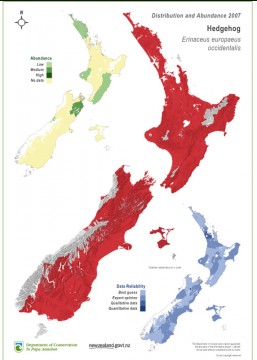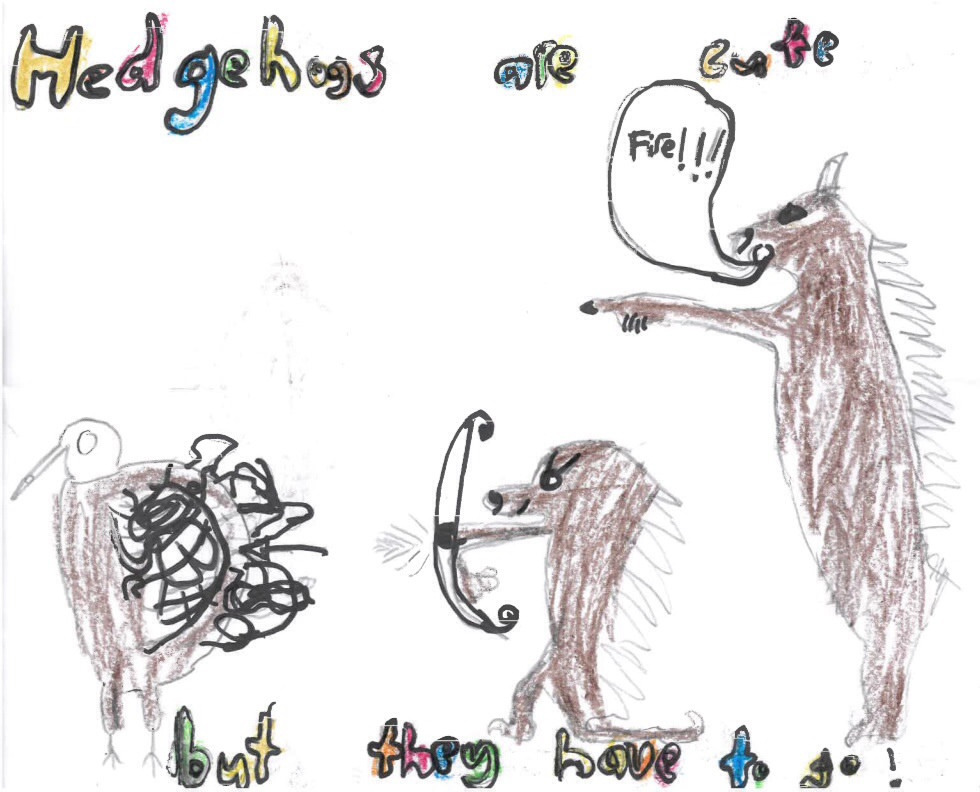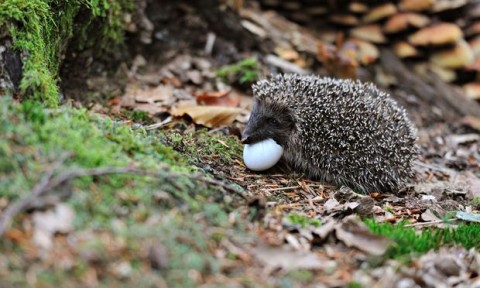Hedgehogs – Cute, but Lethal to Native Wildlife
Many people think of hedgehogs as the cute, harmless creatures they see in British children’s story books. But in New Zealand, they’re known pests that are lethal to native wildlife.
Last night, on Campbell Live, we met the founders of Hedgehog Rescue New Zealand. They take in sick or injured hedgehogs and rehabilitate them before returning them to the wild. The segment begins with a rescued hedgehog named Spike, who wanders in with whimsical music reminiscent of a child’s television show. It isn’t until three quarters of the way through that we’re told that Hedgehogs are classified as pests.
Campbell Live missed an opportunity to educate New Zealanders. Those of us who are involved in conservation know of the impacts that hedgehogs have on native wildlife, but many of their viewers will have come away from the segment misinformed, unaware that it’s not good for our environment to release hedgehogs.
Hedgehogs eat the eggs and chicks of native, ground-dwelling birds. Riverbed breeding birds such as the banded dotterel and black-fronted terns are most at risk, but they are known to prey on a range of species and can take birds up to the size of a two week old chicken.
They have a voracious appetite for native invertebrates and reduce native slug, snail and insect numbers. Hedgehogs have been observed eating giant wētā, rare native centipedes and the native snail Wainui aurnula. In lowland areas, they’ll feed on the juveniles of our large, native giant land snails (Powelliphanta), making it harder for their populations to grow and recover.
Reduced invertebrate numbers directly impacts on species that also feed on insects, such as the iconic kiwi species. Hedgehogs compete with native insectivores for food, and as invertebrate populations decline, it becomes harder for them to find a meal.

Distribution and abundance of hedgehogs in 2007.
In cooler months, hedgehogs will also prey on geckos & lizards when they are slower and easier to catch. They’ve also been seen taking introduced frog species, which makes conservationists think they may also be predators of native frog species. Their impacts on some native wildlife are not as well known, but one thing we can say for sure is that they should not be released into the wild.
In the past, Hedgehog Rescue New Zealand have argued that hedgehogs are fine in suburban areas – where they release them. But even in the city, they’re responsible for a lot of predation of native wildlife. What’s more, city populations will overflow into neighbouring native bush – in fact, they’re already distributed widely across New Zealand. As far as we’re concerned, hedgehogs need to be eradicated everywhere.
If you’d like to see a balanced follow-up story from Campbell Live, let them know – on Facebook, Twitter or by email. We’re more than happy to show them the hard work that our national branches are doing to trap predators such as hedgehogs to protect our native wildlife – which we think are just as cute!


